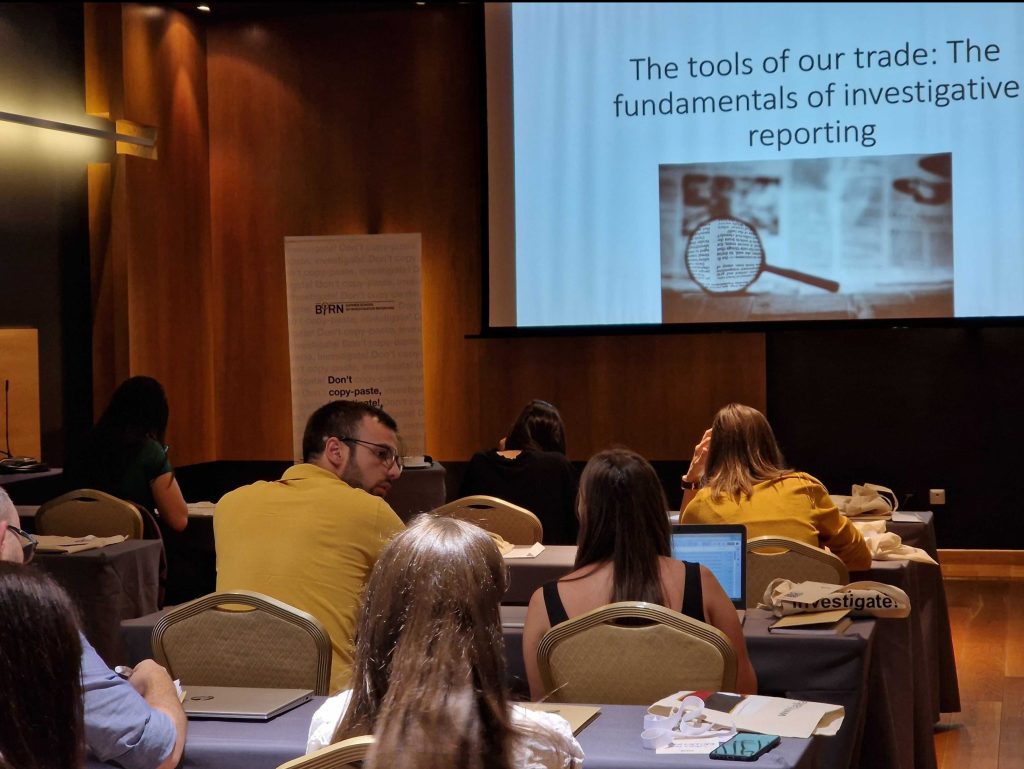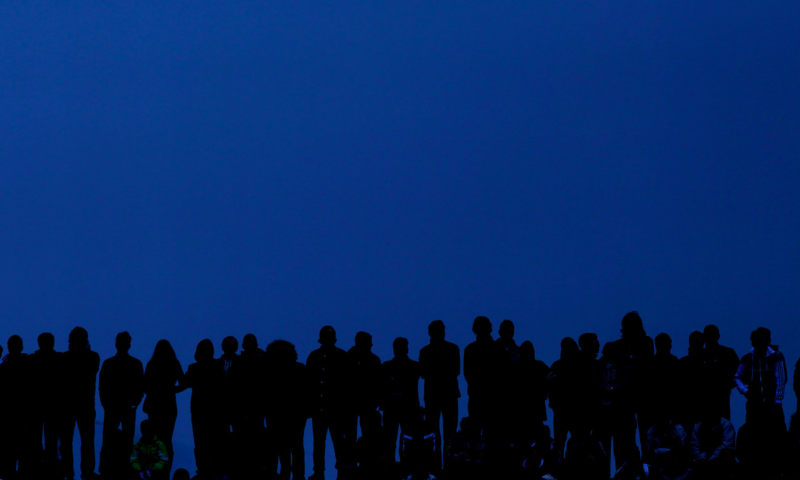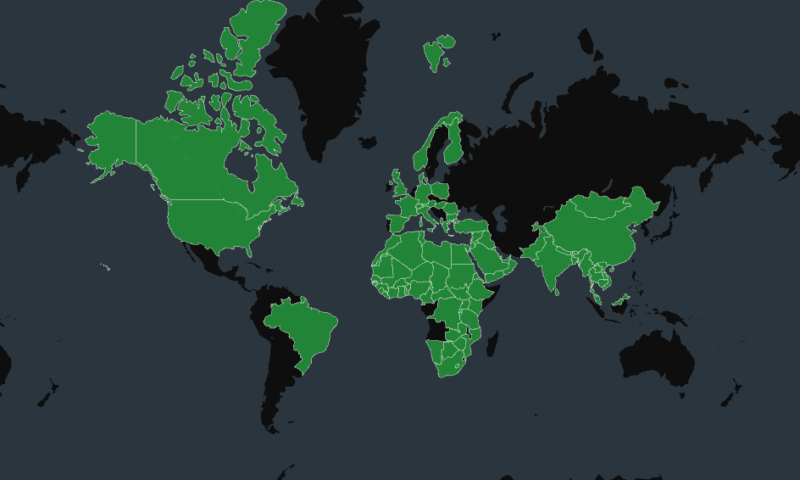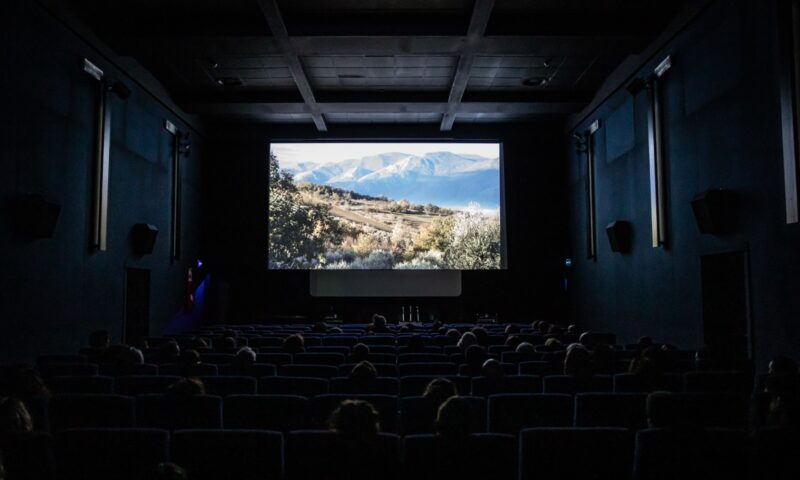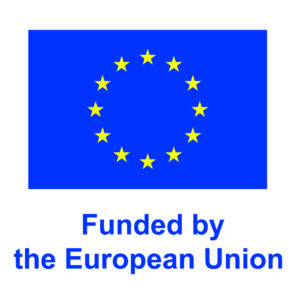Photo from BIRN’s summer school, 2023.
On her desk, Milka Domanovic has four pieces of paper with different to-do lists that she picks up as needed. Now director of Balkan Investigative Reporting Network (BIRN) Hub and of the regional network, Milka has been with the organisation in different roles since 2013, with a short break. The four different lists are testament to the diverse and changing priorities of her current role, as she is supporting and leading BIRN’s complex activities, with international, regional and local projects from its six Western Balkan members.
Widely known for its Fellowship for Journalistic Excellence and Summer School of Investigative Reporting, BIRN focuses on investigative reporting, Balkan transitional justice, capacity building and strengthening of independent media, and digital rights.
Next year, the network will celebrate its 20th anniversary, so to better understand how BIRN works and what their current plans and challenges are, I asked Milka to tell us more about her role. The interview is edited for length.
Directory Editor: What’s on your plate daily?
Milka Domanovic: There are different things that I am constantly involved in, mainly when it comes to the strategic planning on different levels in Hub, with the network. That includes strategic planning on an organisational level or fundraising. I’m also involved in monitoring and quality control of the implementation of the current regional projects and programmes, but also to some extent into the local ones.
Then there is lots of work in communications, because I’m also a representative of the network, so lots of meetings with different donors, stakeholders, briefings. And then because I’m personally very systematic, there’s some level of me trying to introduce some new advanced systems.
Editor: How is BIRN organised at a local and regional level?
MD: We have local offices in what is called the Western Balkan Six. So Albania, Bosnia, Kosovo, Montenegro, North Macedonia, Serbia, and Romania. And we have a BIRN Hub, which is the secretariat of the network or so-called umbrella organisation.
All the network members have their own local strategies, their own priorities. They also vary in terms of thematic focus. In Bosnia, for many years, it was transitional justice, while perhaps in Serbia and North Macedonia, it was more about corruption, organized crime, public procurement, media ownership.
BIRN Hub acts as a secretariat of the network, but also implements regional and international projects. The secretariat is also in charge of fundraising for organizational developments. We also receive institutional support, so Hub is leading on that, and then is also in charge of all the procedures – and there are many procedures, because we are such a complex network.
It includes network rules and regulations, which is the ultimate procedure that regulates the relationships: how someone can become a member, how someone, in case something happens, wants or needs to leave. We didn’t have that, we only grew. Then there are also formal network partnership agreements, with all the rights and obligations clearly defined.
At the level of network, there are different procedures, like in every other organisation. A code of conduct, we have editorial policy guidelines. So these key procedures and policies are adopted by our assembly and they need to then be adopted and implemented by each and every network member to ensure that we have the same level of standards and quality of our output.
Editor: How did the procedures come to be? And are they being updated when needed?
MD: The need was obviously the complex structure of the network, to ensure the highest quality. I’m really happy to say that we still have some of the founders here from the very beginning. So we have a great institutional memory, but obviously I’m very happy that the founders also were very wise to think ahead, and say “these are our values and these are our standards, we want to make sure that we have them in writing”. And this is really great because the network grew so much, from a few people to hundreds of people throughout the region. These rules are pretty much ingrained for ages now.
Editor: Have there been updates to anything since, or any questions that you’ve had to debate?
DM: There have been some practical updates, for instance, in our statute. We have a new member from Montenegro, so we needed to update that. Then there are also technical updates, because we need to make sure that we are in line with local legislation. If our internal procedures are more strict than the local laws, then we need to obey our own procedures.
Some of the procedures were additionally developed, for instance HR procedures, which have been updated, and social media guidelines because obviously social media was not a thing back then, and they need constant updating because of changes. Some additional updates in editorial procedures are planned now in view of AI, so in that regard we keep the essential part, and then we build on that in case of need.
Editor: Who has this responsibility, who is approving or giving feedback?
MD: Core procedures would need to be approved by the assembly, so any changes of network rules or regulations, key changes in the statute.
Editor: Each local member is running their own projects depending on their needs, and at the same time there are also regional projects or international projects that are coming in. How is the decision-making process from BIRN Hub about which projects are running in which particular countries, and how are members consulted?
MD: It is still on a case-by-case basis. There are certain rules in some of the procedures about who needs to be consulted and when, who needs to approve. When there’s an opportunity, we simply communicate and agree, is this in line with our strategic goals?
And if we have enough capacity and we move forward, then we agree what is going to be the small group working on the proposal.
It is getting more difficult in recent years to only fundraise for content production, which is at the core of our work, so sometimes some parts of other activities are basically serving us to sustain our core activities. On the other hand, some of the programmes and regional projects grew naturally, such as capacity building. Our two flagship projects, the Fellowship for journalistic excellence, which started in 2007, and then Summer school of investigative reporting, started in 2010, these are the core capacity building programmes.
There was an obvious need, because there are not so many donors who support local media directly. So we do lots of subgrants and training, capacity building, mentoring, and providing editorial support to local media. It is to a certain extent part of our own fundraising strategy, but it’s also in our values and our goals. So we are very proud that some of the key investigative journalists are now alumni of these two first programs.
Then for instance the newest program, which is digital rights, also grew exponentially because this is an emerging topic both when it comes to the content production, but also we do the monitoring of digital rights violations.
Editor: What are some of your main challenges working in this new role?
MD: The most challenging thing is the lack of time. And in the post-COVID period, I think we all switched to too many meetings, and I know the meetings are work, but I still say “I have these meetings and then I need to work”.
And the fact that people are now so used to online. We’ve always been a regional network, our newsroom was virtual, we were used to that even before COVID. However, now I still see the consequences, not just for me personally and not necessarily just for our network, but in general, how things operate. Lots of things are still staying online, while offline work is much more effective.
Editor: What would you say are some of the main priorities for you this year?
MD: There are different levels of priorities. We are celebrating the 20th anniversary next year. Some of the network members will celebrate this year, but all the region, we aim to celebrate next year. So there is lots of great planning involved there, but also it’s a great opportunity for introspection: what is going well, what can be improved, where we are now and where we want to be in 5, 10 or 20 years.
Obviously for me as head of BIRN Hub and the regional network director, maintaining and sustaining current operations remains the ultimate priority without saying.
And then another key priority is something new that we are working on, a museum in Sarajevo. It’s going to be called Reporting House, it’s part of our transitional justice programme because it will be focused on both wars in former Yugoslavia, but also the work and significance and role of journalists as well as propaganda in war. So it’s a massive project and there’s a lot of planning around that. It was out of the desire to continue working on transitional justice issues while there is unfortunately a lack of interest there. And we wanted to also use some of the past archival material that we’ve collected for many years, but also to tell it in an innovative way.

